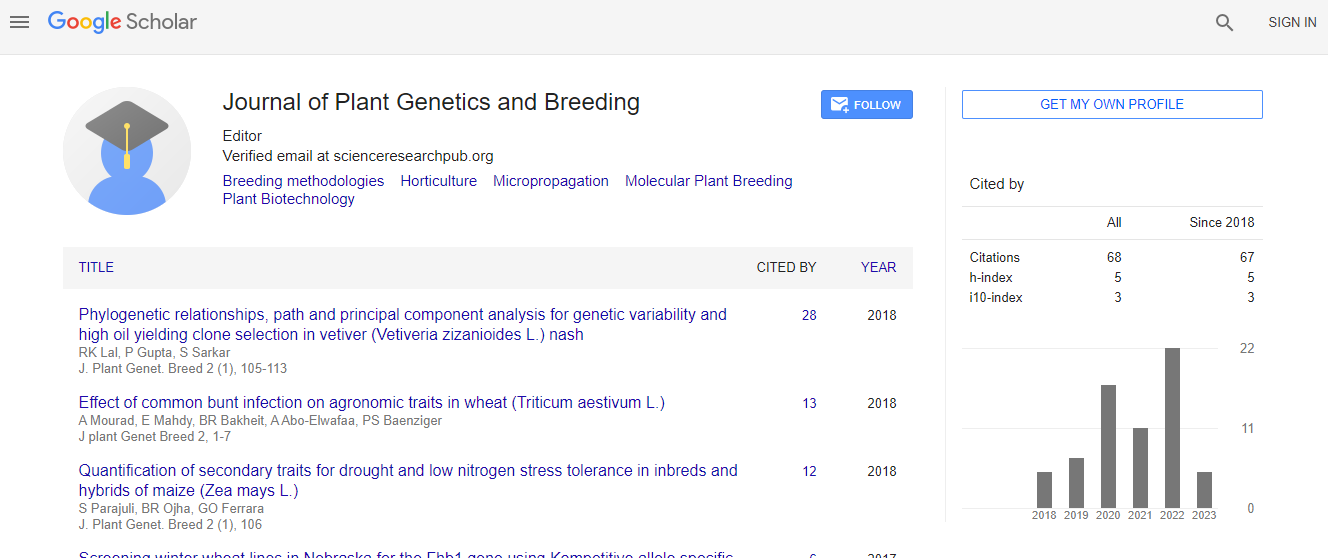Mitigating abiotic stress consequences with improved tolerance and crop productivity through physiological strategies
*Corresponding Author:
Copyright: © 2019 . This is an open-access article distributed under the terms of the Creative Commons Attribution License, which permits unrestricted use, distribution, and reproduction in any medium, provided the original author and source are credited.
Abstract
Abiotic stresses, viz., drought, salinity, heat, flooding and others are expected to be more frequent in future due to disturbances in global climate, posing a serious challenge for plant scientists to ensure food supply for the growing world population. Besides pulses, intricate molecular physiology and biochemistry need to be understood in economic plants by devised cutting edge technologies for developing climate resilient genotypes and predictably enhanced productivity. For a quantum jump in yield potential, we must explore the possibilities of breaking the yield barriers to augment yield stability. To combat stress effects, plants develop some common tolerance mechanisms and stressor specific mechanisms to cope up with stress. Though, the degree of tolerance varies from plant to plant, from low to high. The hardened seeds of chickpea and Field pea followed by foliage applied Salicylic Acid (SA), methyl and 24-epibrassinolide considerably alleviated negative effects of drought stress minimizing lipid peroxidation, maintenance of relative water content, accumulation of sugar, proline, ascorbic acid and enhanced antioxidative ezymes activity in leaves. SA contributed for increased growth and development, flower, pod retention and effective nodulation in different pulse crops with improved Nitrogen Use Efficiency (NUE) and yield under stress. Maximum reduction was noticed in two chickpea varieties. SA @1.5 mM was more effective than @1.0 mM in improving NR activity Evolved tolerant and susceptible cultivars were examined at critical developmental stages of seedling growth, reproduction and seed development duly treated with 24-epibrassinolide @0.05mM for mitigating salinity effects identically. Paclobutrazol alleviated harmful effects of flash flooding in mungbean through improved water use efficiency, antioxidant enzymes activity and synthesis of antioxidants of compatible nature. Conclusion and Significance: Stress tolerance may be achieved by enhanced function of physiological systems. Information on stress-inducible genes, genetic control of stress responses, signaling pathways leading to adaptations are needed for ultimate mitigation. Abiotic stresses, such as temperature extremes, drought, salinity, and heavy metals are major factors limiting crop productivity and sustainability worldwide. Abiotic stresses disturb plant growth and yield formation. Several chemical compounds, known as plant growth regulators (PGRs), modulate plant responses to biotic and abiotic stresses at the cellular, tissue, and organ levels. Thiourea (TU) is an important synthetic PGR containing nitrogen (36%) and sulfur (42%) that has gained wide attention for its role in plant stress tolerance. Tolerance against abiotic stresses is a complex phenomenon involving an array of mechanisms, and TU may modulate several of these. An understanding of TU-induced tolerance mechanisms may help improve crop yield under stress conditions. However, the potential mechanisms involved in TU-induced plant stress tolerance are still elusive. In this review, we discuss the essential role of TU-induced tolerance in improving performance of plants growing under abiotic stresses and potential mechanisms underlying TU-induced stress tolerance. We also highlight exploitation of new avenues critical in TU-induced stress tolerance.

 Spanish
Spanish  Chinese
Chinese  Russian
Russian  German
German  French
French  Japanese
Japanese  Portuguese
Portuguese  Hindi
Hindi 